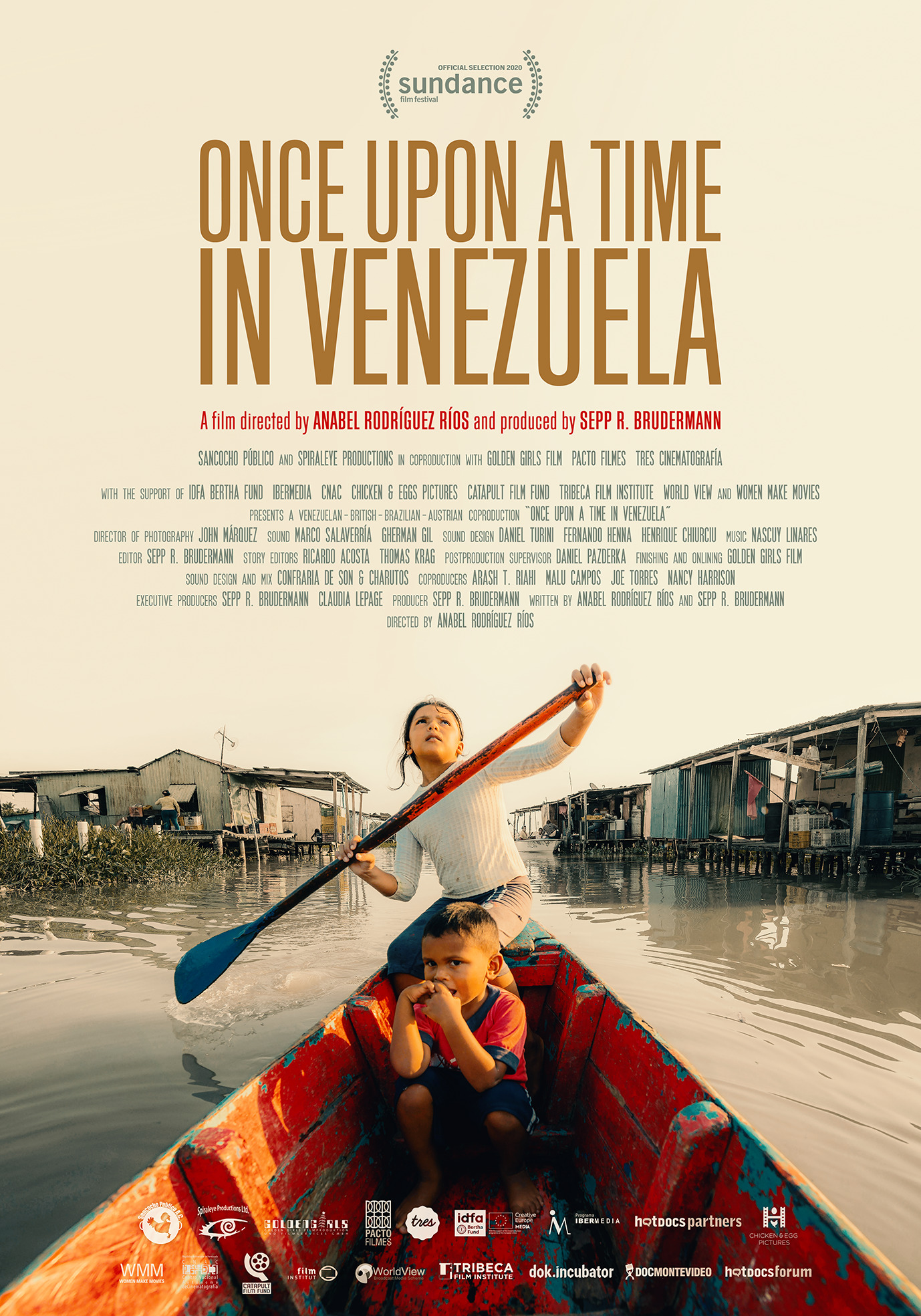Once Upon a Time in Venezuela
Synopsis
At night, the sky above Venezuela’s Lake Maracaibo is a sight to behold, an electrifying lacework of lightning for which this tourist destination is famous. But in the harsh light of day, the tragic state of this otherwise beautiful tidal bay is evident, with once-thriving fishing villages sinking into sedimented water as a result of their proximity to oil drilling facilities. One such settlement is Congo Mirador, a collection of elevated huts on the southern part of the lake that has become nearly uninhabitable and whose residents — mired as much in political corruption as in environmental pollution — are forced to make difficult decisions if their rapidly dwindling population is to survive. Having spent several years in the company of these villagers, filmmaker Anabel Rodríguez Ríos documents their day-to-day struggles with compassion and subtlety, showing how divisive party politics are fracturing a community on the verge of disappearance. Filmed in the aftermath of Hugo Chávez’s death and the disputed presidential election of his successor, Nicolás Maduro, in 2013, Once Upon a Time in Venezuela suggests that the problems of Congo Mirador are partially the result of an illegitimate government’s failures to protect citizens’ rights and to make food and educational resources widely available in times of need. On one side of the political divide stands Tamara, a local government coordinator and dyed-in-the-wool supporter of the Chavist regime who is not above bribery herself if it means extending her party’s reach into the country’s most remote locations during the lead-up to parliamentary elections. This proud proponent of the Bolivarian Revolution is matched on the other side by an equally defiant teacher named Natalie, who — as one of only a few dozen people yet to leave the sinking village — openly criticizes a regime whose representatives not only buy votes but also deprive children of school supplies and turn their back on an ecological disaster that will affect generations of Venezuelans to come. These two women and the local concerns that they give voice to embody the challenges involved in resolving a crisis of truly national proportions.
By David Scott Diffrient

Filmmakers
Anabel Rodríguez Ríos
Venezuela | United Kingdom | Brazil | Austria
2020
99 minutes
(Spanish with English subtitles)